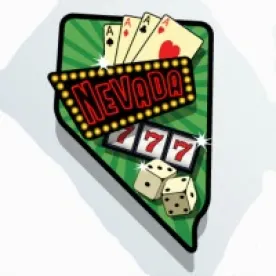The Nevada Gaming Control Board (the “Board”) has been delegated the responsibility of resolving disputes between casino customers and the casinos pursuant to the process for patron disputes outlined in NGC Regulation 7A. This includes, for example, making determinations as to whether a jackpot was wrongfully withheld or in fact caused by a machine malfunction that voids the play. As the impartial gaming professionals, the Board acts as the neutral arbiter of these consumer and licensee protection cases. Courts have also given great deference to the findings of the Board by limiting the scope of appellate review of such patron dispute cases.
This orderly process may be threatened, however, by an interesting “patron dispute” that has recently moved from the Board to Nevada’s Eighth Judicial District Court (the “court”) with the filing of a request for judicial review in the matter of Tsun Young v. Nevada Gaming Control Board and Hard Rock Hotel and Casino (Case A-18-775062-J), filed May 23, 2018.
Tsun Young (the “Petitioner”) attempted to redeem six $5,000 denomination Hard Rock Hotel (the “Licensee”) chips for a total of $30,000 – first in January 2011 and then more recently in October 2016. These requests for redemption were denied by the Licensee. The Petitioner ultimately hired legal counsel and proceeded with the formal “patron dispute” procedures. (Normally, a licensee is required to inform the Board when there is a dispute involving a sum of at least $500, although in the proceedings below, there was no mention of any report having been made to the Board in 2011.)
As the Petitioner exhausted his administrative remedies, the court appeal was preceded by a hearing before the Board’s Hearing Examiner followed by a request for reconsideration by the Board. In each instance, following an investigation, the finding and recommendation of the Board against the Petitioner was affirmed.
The payment denial was predicated upon the evidence adduced at the hearings that showed that, although the Petitioner had been a “rated player” at the casino during the period between 2008 and 2011, and had somewhere between $335,300 to $1,700,000 in chip buy-ins, the Licensee’s records of play detail did not show that the Petitioner lawfully possessed the $30,000 in chips through game play at the casino. The Petitioner was unable to recall exactly when and how he came into possession of the six $5,000 denomination chips.
The Petitioner attempted to show by “expert testimony” that during his play, he was “rat holing” or “going south” with the chips, in which he would surreptitiously and periodically remove a chip or two from his stack on the table so that the casino personnel assigned to rate his play would see a diminished bankroll and record a loss greater than had actually occurred. The Petitioner believed that this process would earn him a higher level of complimentaries for his play. Although plausible, because of a lack of notice to the Licensee, the testimony was not deemed to be admissible.
More interesting is the Board’s second grounds for denial of Petitioner’s claim: the finding that he was not a “patron” of the Licensee. The Hearing Examiner concluded that in order to be a “patron,” the Petitioner had the burden to show that he was a casino “patron” who came into possession of the chips while engaged in gaming, as opposed, perhaps, to customers who would walk into the establishment for non-gaming play.
The Hearing Examiner relied upon a prior unreported District Court decision that indicated that in order to be a “patron” for purposes of seeking a resolution through the Board’s patron dispute process, a person had to be “a customer of the gaming establishment that obtained the chips through a game, tournament, contest drawing, promotion or similar activity.”[i]
Although the term “patron” is liberally referenced throughout the Nevada gaming statutes and regulations (including references to “patrons” when discussing customers at club venues where no gaming occurs), surprisingly, it has never been specifically defined.
There are many reasons why casinos should reject the redemption of their casino chips without an adequate record to show that they were derived from legitimate play. Chief among these are the plethora of anti-money laundering statutes and regulations that charge casinos, as financial institutions, with a heavy responsibility to “know” their customers and closely track their casino actions. Failures by casinos to monitor patrons’ play with detailed logs and to file requisite reports to FinCEN (Financial Crimes Enforcement Network) have resulted in substantial fines.
Among the questions for the court to resolve is whether the Licensee’s system of recording play was accurate and reliable for these purposes and whether the Petitioner had proved that in this instance he was a “patron,” allowing him to bring this action utilizing the Regulation 7A patron dispute process.
Gaming attorneys and casino executives who are charged with tracking patron play and dealing with patron disputes will be closely following this case to learn if the seldom-challenged regulatory framework that gives high deference to the Board in resolving such patron disputes will be left intact.
[i] Porter v. MGM Grand Hotel/Casino (2013), Case # 2013-7893L.







 />i
/>i
